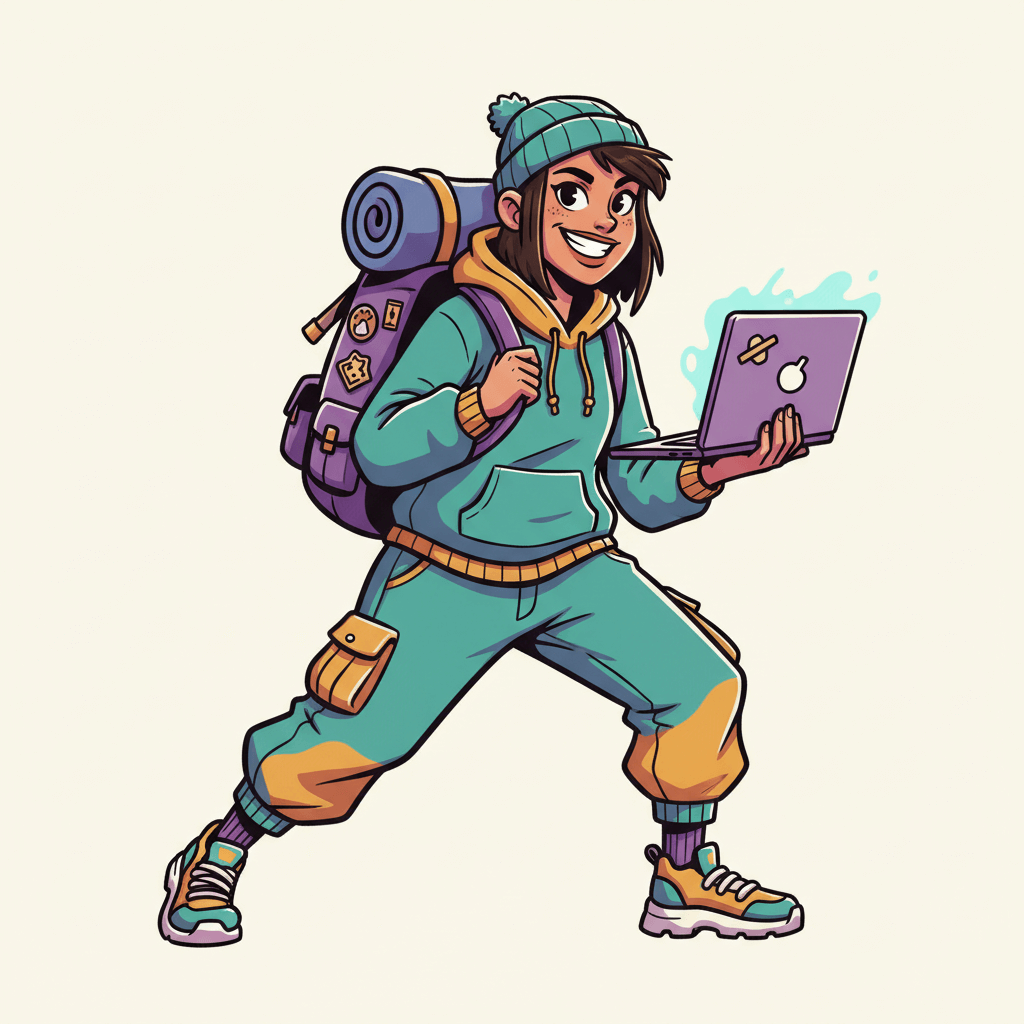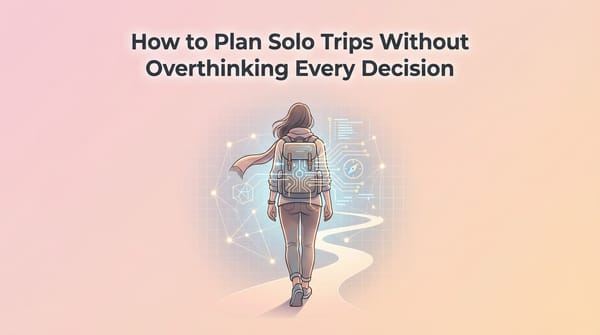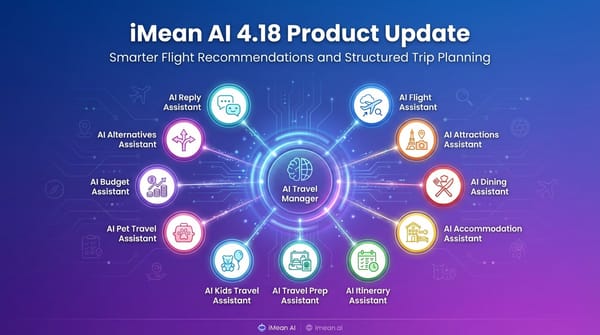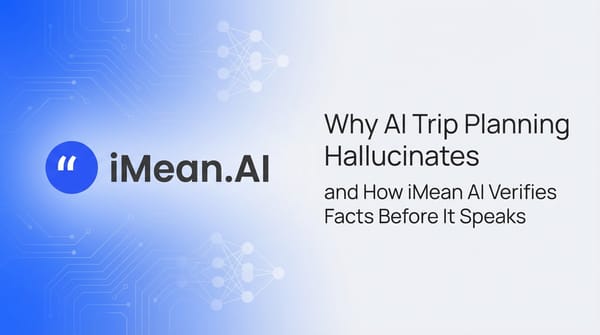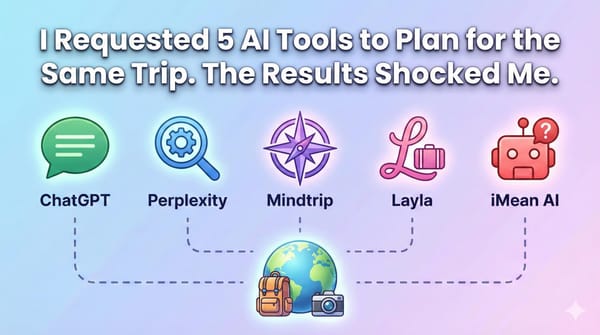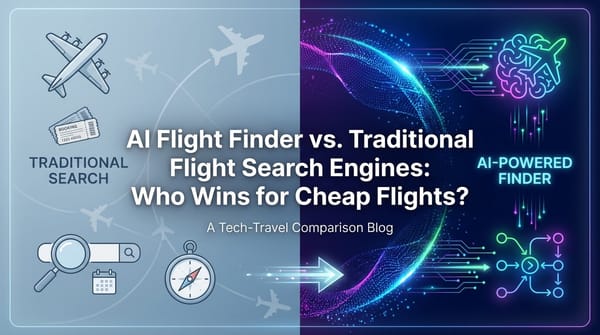What do you feel when you decide to travel? First happy, then maybe getting deeply stressed out. Before packing your bag excitedly, you still need to spend hours a day studying the tiniest details about your hotel, layover, transportation, restaurants, and other aspects. The kind of pre-vacation excitement makes scrolling through information about the destination fun at first.
But somewhere between comparing prices, checking maps, and reading endless “Top 10 things to do in…” articles, that excitement slowly turns into fatigue. By the time I actually book everything, I’m already tired, not from the journey, but from the planning itself. That’s when I started searching for smarter travel planning tools.
The planning stress
Here’s what usually happens. I can get a million saved travel wish-list items over countless apps and platforms. However, every decision feels like a micro-test: Should I fly early or late? Which neighborhood is safest? Is this hotel really as nice as on the pictures?
I can spend a lot of time flipping between Google Flight, Bookingcom, Google Maps, Reddit, and like 5 travel blogs to plan an itinerary. I think part of the stress comes from this unspoken pressure to make every trip “worth it.” Social media doesn’t help. We see perfectly curated travel reels including sunsets, street food, and cozy hotels. Then we start believing our vacation has to look like that, too.
Personally speaking, it feels every small choice suddenly becomes high stakes. I want to save money and have a comfortable experience. I want to explore, but I'm afraid of wasting time. Even if I have made the itineraries, I can't help scrutinizing them again and again. By the end, my brain feels fried. What was supposed to be a few hours of planning turns into several nights of overthinking. That’s a heavy thought for something that’s supposed to be light.

Maybe planning shouldn’t feel like work
I used to treat travel planning like a mission. In terms of flight prices, it's annoying when they constantly change, and I never know when to pull the trigger. I often feel decision fatigue from trying to make every detail fit perfectly, and it ends up putting too much pressure on having a “perfect” trip.
And in doing so, even more for me, we do so much research that it can feel underwhelming when you arrive because you've seen every nook and cranny of something from vlogs, blogs, Reddit posts, etc., before you even arrive. That being said, definitely times I screwed up and didn't get to do something cool because I simply did not research deep enough into whether or not I needed tickets in advance, or that this museum closes the 2nd Monday of every month (exactly when I'm there).
The more I prepare, the less spontaneous everything feels. I'm not in the mood for dreaming of travelling anymore because I'm too drained. It started to feel like I was building a project plan for work with deadlines, logistics, and budgeting, except this time I was both the boss and the intern. That’s why I started thinking: the problem isn’t travel itself. I need some hacks that can help me approach planning easily.
A few things that actually make planning easier
In my opinion, I do a lot of traveling, given cheap flights and accommodations. Here are some things I usually do to make sure I'm not missing something obvious.
Start with feelings, not destinations
Instead of asking “Where should I go?”, I ask “What do I want to feel?” Maybe I want to slow down, or maybe I crave energy and discovery. Once I know the feeling I’m looking for, choosing a destination becomes easier and more meaningful.
Limit your resources
Too much information kills excitement. Pick a few trusted sites or apps and stick with them. You don’t need to read 40 reviews because sometimes three are enough to tell you what you need.
Leave room for surprise
Don’t plan every hour. Keep one or two days open, and let them unfold naturally. Some of the best memories come from moments that were never on the schedule. When I started doing these things, planning stopped feeling like pressure. It became a space for curiosity again.
Let technology do the heavy lifting
It's the point that truly illuminates. There’s no reason to manually compare every flight or hotel anymore. Smart travel planning tools can now search the entire web, filter by real location and price range, and even build itineraries that match your pace.
The moment it started to change
I remember the first time I decided to stop doing everything by hand. I gave an AI trip planner called iMean AI a try to organize part of my trip. Actually, I was skeptical at first. So I just want to use it to help sort through the mess of options I’ve collected, seeing what would happen.
It's not the kind that only lists partner hotels or generic tourist spots, but one that actually understands how travelers think. What surprised me most wasn’t the speed or accuracy, though both were impressive. It was how human the process felt. Instead of juggling a dozen tabs, I could simply describe what I wanted. Something like “a quiet seaside town, not too crowded, with local food and good Wi-Fi”, and it would pull together options that actually made sense.
No random ads, no irrelevant results, just clear ideas I could build on. The most important part is that it changed the feeling of planning. Instead of bouncing between plenty of websites, I could focus on imagining the experience again.

Rethinking what “organized” means
I used to think being organized meant controlling every detail. Now I think it’s more about creating space for curiosity, mistakes, and surprise. That’s where an AI trip planner can really make a difference. It’s not about replacing the human side of travel, but about removing the parts that drain us, like the endless comparisons, the conflicting information, and the little frustrations that pile up. When the tedious parts fade away, you finally have room to focus on what matters: the experience itself.
Final thoughts
The biggest shift I’ve noticed isn’t in how I travel, but how I feel before I travel. I don’t start my trips exhausted anymore. I started them excited. Because planning doesn’t have to be perfect. It just has to feel human. It’s okay to make changes, to let the plan breathe. To leave space for the unknown.
I’ve learned that when planning stops feeling like a job, traveling starts feeling like life again. So maybe the trick is to plan differently rather than less. With less pressure. With more imagination. And with a little help to carry heavy stuff, so your mind can wander freely again. After all, the journey doesn’t start when you board the plane. It starts when you begin to imagine where you might go next.
Planning doesn’t have to feel like work!
Try letting iMean AI handle the details, so you can focus on imagining your next adventure.

